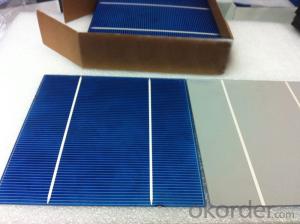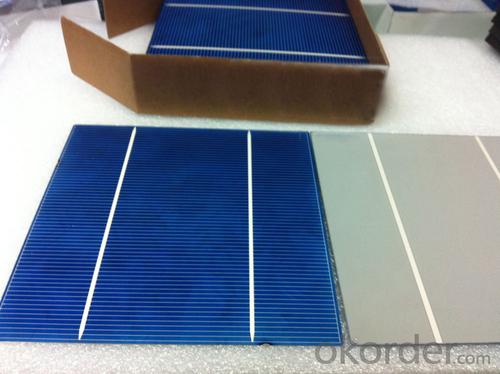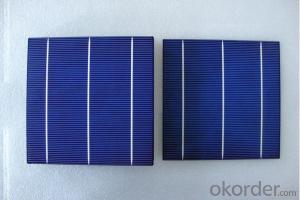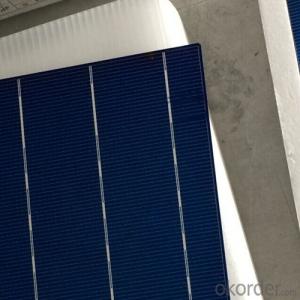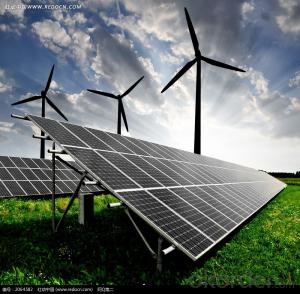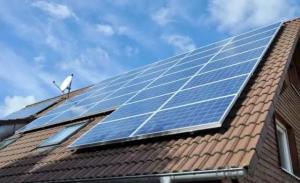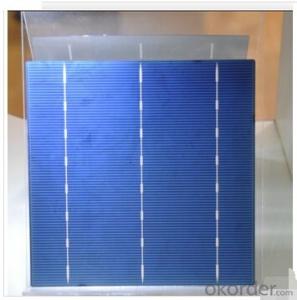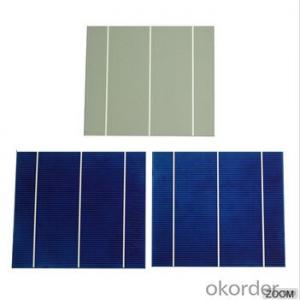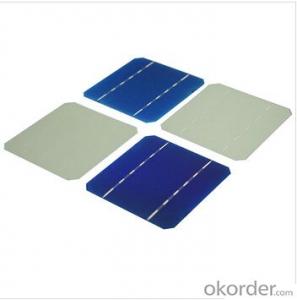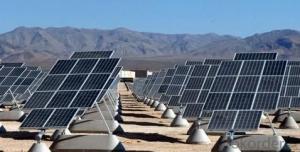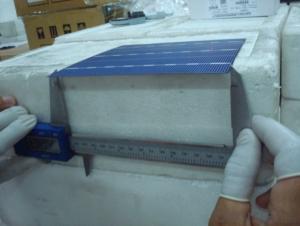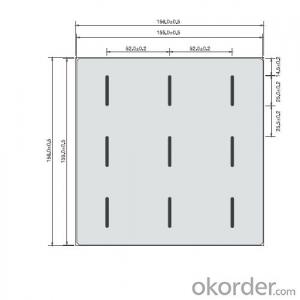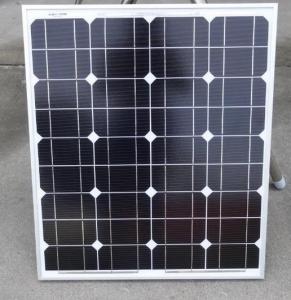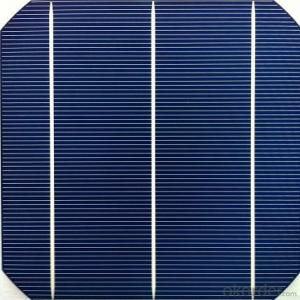High Quality Cadmium Telluride CdTe Solar Cells Poly-10% Effy
- Loading Port:
- China Main Port
- Payment Terms:
- TT OR LC
- Min Order Qty:
- -
- Supply Capability:
- -
OKorder Service Pledge
Quality Product, Order Online Tracking, Timely Delivery
OKorder Financial Service
Credit Rating, Credit Services, Credit Purchasing
You Might Also Like
Specifications
1. High efficiency and High power.
2. Long-term electrical stability.
3. Lowest price and Fastest delivery.
4. Good quality.
Advantage:
1. High efficiency and High power.
2. Long-term electrical stability.
3. Lowest price and Fastest delivery.
4. Good quality and good service.
5.Bulk supply
6. Good Warranty
7.Big Sale
8.Made in Taiwan/Germany etc for high quality
9.More than 35 years on the lifetime.
10 DHL/Fedex/UPS/TNT/EMS etc
11 No anti-dumping tax
- Q: Can solar cells be used for powering universities?
- Yes, solar cells can definitely be used for powering universities. Solar energy is a reliable and sustainable source of power that can be harnessed through solar cells or panels. By installing solar panels on university buildings or campuses, universities can generate clean electricity, reduce their carbon footprint, and potentially save on energy costs in the long run.
- Q: How do solar cells perform in areas with high levels of noise pollution?
- Solar cells are not significantly affected by noise pollution as they primarily convert sunlight into electricity. Noise pollution does not have a direct impact on their performance.
- Q: Can solar cells be used in remote sensing devices?
- Yes, solar cells can be used in remote sensing devices. Solar cells convert sunlight into electricity, which can power various sensors and data collection devices used in remote sensing applications. The use of solar cells ensures that these devices can operate independently and sustainably in remote locations without the need for external power sources.
- Q: Can solar cells be damaged by hail or other weather conditions?
- Yes, solar cells can be damaged by hail or other severe weather conditions. Hailstones can cause physical damage to the surface of solar panels, resulting in cracks or fractures that may affect their efficiency. Additionally, extreme weather events such as heavy rain, strong winds, or lightning storms can potentially cause electrical and structural damage to solar cell systems. Hence, it is important to consider the durability and resilience of solar panels when installing them in areas prone to such weather conditions.
- Q: How about the solar cell 156mm Mono-Crystalline?
- The detailed measurement of the mono solar cell is Format: 156mm*156mm±0.5mm and Thickness: 200μm±20μm
- Q: What is the difference between solar cells and solar panels?
- Solar cells and solar panels are closely related but have some key differences. A solar cell refers to a single unit that converts sunlight into electricity through the photovoltaic effect. It is the basic building block of a solar panel. On the other hand, a solar panel, also known as a photovoltaic module, is made up of multiple interconnected solar cells. The purpose of a solar panel is to harness a larger amount of sunlight and generate a higher output of electricity. In summary, while a solar cell is the individual component that directly converts sunlight into electricity, a solar panel is a collection of interconnected solar cells that work together to produce a higher power output.
- Q: Anybody ever heard of thin film solar cell? What it that?
- Thin film is a kind of special material, known as TM.
- Q: How do solar cells affect the electric grid?
- Solar cells can have a positive impact on the electric grid by generating clean and renewable energy. When connected to the grid, they can feed excess electricity back into the system, reducing the demand for power from traditional sources. This helps to decrease reliance on fossil fuels and lowers greenhouse gas emissions. However, the intermittency of solar power can pose challenges for grid operators in managing fluctuations in supply and demand.
- Q: Can solar cells be used in cloudy weather?
- Yes, solar cells can still be used in cloudy weather, although their efficiency may be reduced. Cloud cover will block some sunlight, causing a decrease in the amount of energy that can be generated by the solar cells. However, modern solar cell technology has improved to the point where even on cloudy days, some electricity can still be produced.
- Q: Can solar cells be used to power remote agricultural monitoring systems?
- Yes, solar cells can be used to power remote agricultural monitoring systems. Solar cells convert sunlight into electricity, providing a sustainable and reliable source of power in remote areas. This allows agricultural monitoring systems to operate efficiently and continuously, enabling farmers to remotely monitor and manage their crops, weather conditions, soil moisture, and other important data for optimizing agricultural practices.
Send your message to us
High Quality Cadmium Telluride CdTe Solar Cells Poly-10% Effy
- Loading Port:
- China Main Port
- Payment Terms:
- TT OR LC
- Min Order Qty:
- -
- Supply Capability:
- -
OKorder Service Pledge
Quality Product, Order Online Tracking, Timely Delivery
OKorder Financial Service
Credit Rating, Credit Services, Credit Purchasing
Similar products
Hot products
Hot Searches
Related keywords
